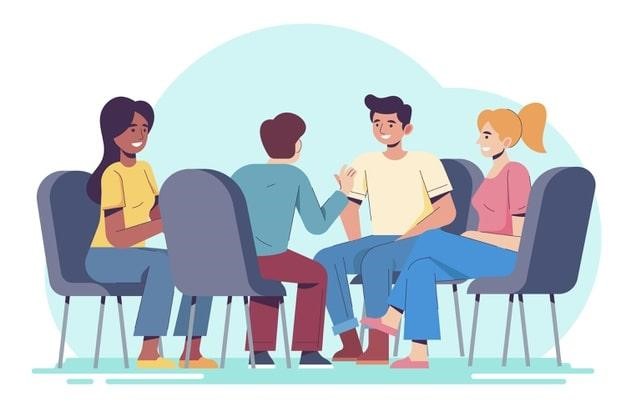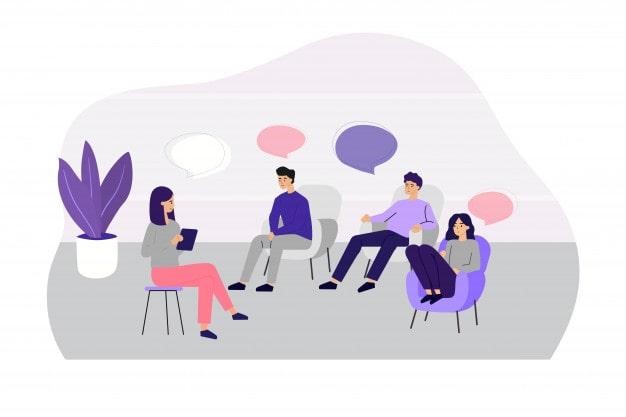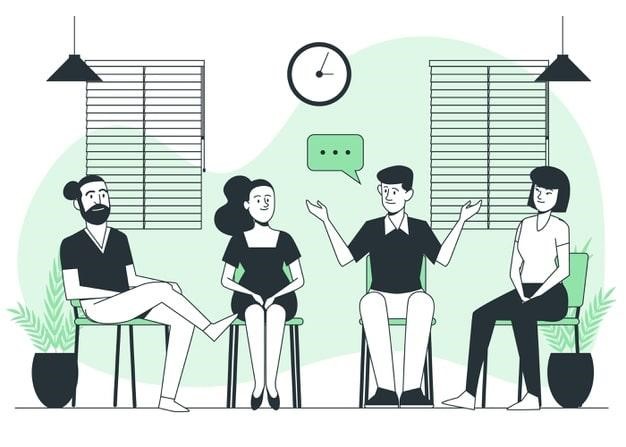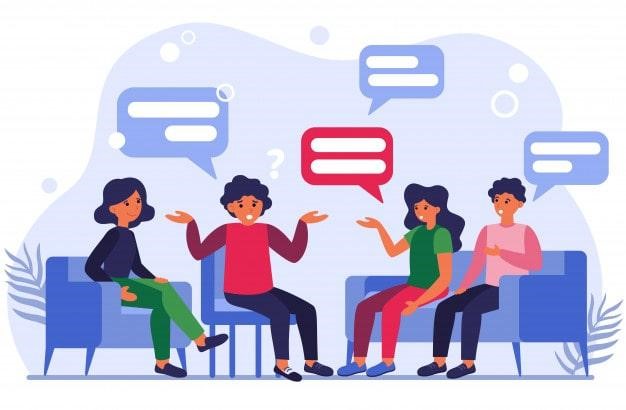Weighing The Pros & Cons Of Group Therapy

Humans are social beings and we thrive in the company of others. We cannot heal alone, either. We need social support and counsel to heal. Psychotherapy is one of the ways a person can get help for the treatment of their mental health condition. One of the popular forms of psychotherapy is group therapy.
Psychotherapy is also known as “talk therapy” because of its direct way to treat using psychological means instead of medicine. Although, this therapy requires much more than just talking through your problem.
Also Read: 8 Reasons To Give Talk Therapy A Try
Some of the types of psychotherapy that are commonly used to treat various mental health disorders are:
Mini-Guide: Interpersonal Psychotherapy for Depression
A Complete Guide to Group Therapy
What Is Psychodynamic Therapy | Approaches, Uses, And Key Concepts
These therapy treatments all employ different approaches. For example, group therapy sessions can be broken into sub-categories such as support groups, CBT groups, developmental skills groups, or interpersonal therapy groups. A trained psychologist can help you understand which group therapy will be right for you and your disorder.
However, every therapy has its advantages and disadvantages. In this blog, we’ll discuss some of the pros and cons of group psychotherapy.
Also Read: A Complete Guide to Group Therapy
Pros Of Group Therapy: Group Therapy Advantages

Some of the benefits of group therapy can be:
1. Provides An Opportunity To Interact With Others
Group therapy provides you with an opportunity to interact with others who are struggling with the same issue as you. It makes you feel that you are not alone in your struggle. A group therapy session also offers you a chance to create a support system apart from your therapist. While talking to a professional is helpful, talking to another person can be comforting.
Disclaimer: As BetterHelp Affiliate, We may receive compensation from BetterHelp or other sources if you purchase products or services through the links provided on this page.
Sharing experiences in a group therapy session can also help in the healing process and overcoming hurdles. Usually, one group therapy session consists of not more than ten people. This gives everyone involved to share their thoughts and experiences.
2. There Is No Judgment

A group therapy session provides a safe, non-judgmental space to share your experiences and speak what’s on your mind. Remember, that everyone in the therapy session has been or is going through the same issues as you. While their experiences might differ from yours, it provides a safe space to share them nonetheless.
“What would others think?” is a question that plagues the mind of everyone involved in group therapy. But, likely, others are also thinking the same thing as you. Any therapy session is supposed to provide a safe, non-judgmental space, and more often than not, group sessions have certain policies that clients have to adhere to to create a comfortable environment.
3. Provides An Opportunity To Stay Silent

Sometimes, we don’t want to talk or share our experiences with others or maybe we are not ready to speak about a certain topic. In a group setting – it is acceptable and there is no obligation to share if you don’t want to. Sometimes, listening to others share their experiences can help you understand your situation better.
No therapist can force you to share, the decision is solely yours. Group therapy aims to make you feel comfortable and if you’re comfortable not talking, then it’s okay.
4. It Is Confidential

This is probably one of the most common worries that people who choose a group therapy session have. Every group therapy session is supposed to be confidential, as in all information, experiences shared in a group setting are not allowed to be shared with others outside of the group.
Confidentiality and privacy is a serious concern and in a typical circumstance, a therapist will ask you to sign a confidentiality document which contains consent forms, privacy policies, along with reasons on how privacy can be broken.
5. It Is Cost-Effective
More often than not, individual therapy or one-on-one therapy cost more than group therapy. Group therapies are more affordable and cost-effective as compared to individual therapies because a therapist is working with multiple people at the same time.
For example, if an individual therapy costs $100 per session, in a group therapy setting (with say 4 people) it will cost $25 for each person. The price of the session depends on the therapist and the therapy approach they prefer.
Cons Of Group Therapy: Group Therapy Disadvantage
Nevertheless, there are some disadvantages to group psychotherapy as well such as:
1. It Doesn’t Always Offer Personal Attention

One of the major disadvantages of group therapy is that a session is not solely dedicated to you. While in a group setting, you are encouraged to share, there is still a limit on time. Sometimes you aren’t able to share as much as you want.
In individual therapy, the time allotted for one session is solely dedicated to you and you can receive more detailed input as compared to a group session.
2. Scheduling Therapy Sessions Can Be Difficult

Group therapy is a concept that appreciates constant attendance. Sometimes, due to work or other commitments, it might be difficult to schedule a session or dedicate a session at a certain time of the day.
3. Not Everyone Is Comfortable Sharing In A Group Setting

While for certain people group therapy might be effective, for some it might not be the right therapy. If someone is struggling with social anxiety, they might feel uncomfortable and pressured in a social setting, even if the session is judgment-free and safe.
Group therapy isn’t ideal for everyone, therefore you need to take a detailed mental assessment under a professional therapist to understand which type of therapy is the right one for you.
Final Thoughts…
Group therapy or any other kind of therapy has its pros and cons but the most important thing to keep in mind is that whatever therapy you choose, it is for you and cater to your needs. You need to feel comfortable and safe in whatever therapy session you feel is right for you.
If you’re looking for help and require therapy, you can visit popular online therapy options BetterHelp or Talkspace, or you can write to us at info@calmsage.com for more information.
Hopefully, this blog helped you understand the advantages and disadvantages of group psychotherapy.
Don’t be afraid to reach for help if you need it.
Next Read:
How Is Behavior Therapy Different From Psychoanalysis?




















